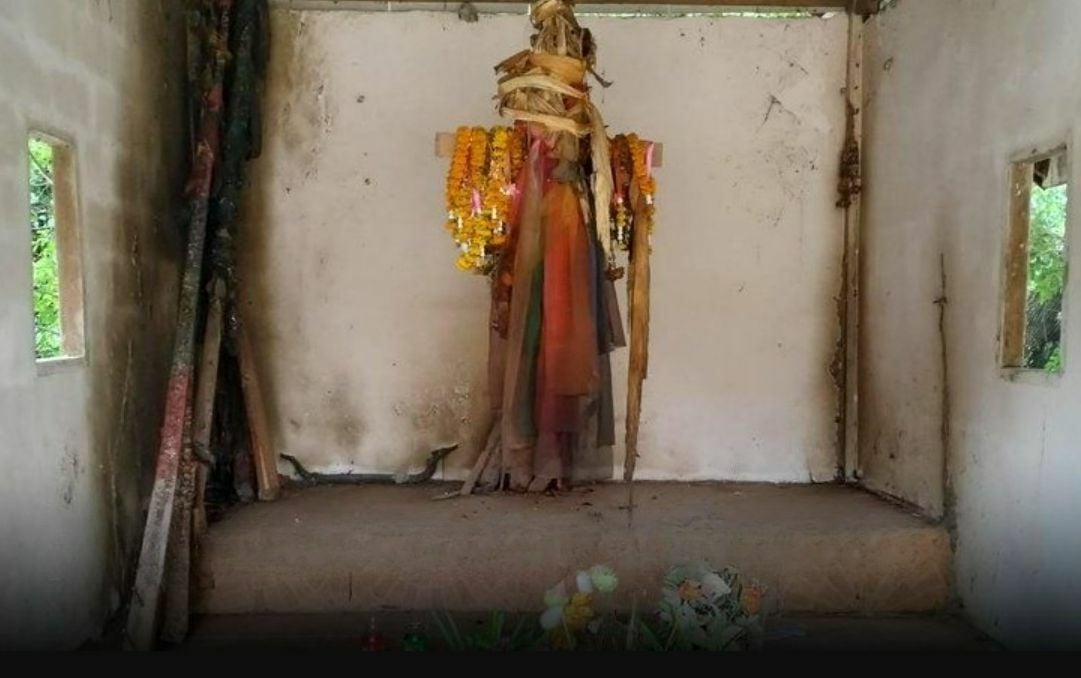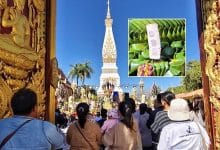Rare ceremony for Jao Por Xiang Do brings luck and excitement to Surin community after 10 years

Yesterday, at 9am, more than 1,000 participants gathered for a ceremony at the Seiang Do Shrine near the Huay Kaew water storage in Rattnaburi, Surin province. This ritual was a part of the annual Boon Bang Fai ceremony for Surin province’s Ban Phue community in Rattanaburi. It serves to preserve ancient cultural traditions and is being held for the first time in more than ten years.
During the ceremony, around 200 dancers performed a beautiful traditional dance to ask for blessings of timely rain, abundant food, and prosperous livelihoods. Following the ceremony, people with strong faith visited the Seiang Do shrine to light incense and ask for fortune. This was done using a traditional method, which involved burning incense until the number ‘455’ appeared – generating excitement amongst the attendees as they had not seen this ritual being performed in over a decade.
The ceremony has not been conducted for more than ten years in the community because previously, only residents with strong faith would visit the shrine to ask for blessings in a more casual manner. The area around the shrine was undeveloped, making it difficult to access as it was surrounded by dense forests. Nevertheless, many people believed in its sacred power and its ability to bring good fortune.
With the revival of the grand ceremony, many excited villagers plan to use the lucky number ‘455’ to try their luck in the upcoming national lottery on May 16.
The Seiang Do shrine is situated near the source of Huay Kaew, known as “Khod Seiang Do,” a natural spring that has existed for more than a century. The water flows into the large Huay Kaew reservoir, which has long been used by the people of Rattanaburi for consumption and irrigation. The shrine has no clear historical records of its construction, but villagers believe it is around 100 years old and holds sacred powers to grant blessings and prosperity.
Narin, 81 years old, a resident of the Ban Phue community, shared a story about the shrine’s sacred powers. One day, a group of villagers from Nong Thep visited Seiang Do to drink water from the natural spring. One of them complained that the water smelled foul, even though the spring water was known for its pleasant aroma. As they continued their journey to the market, the man who complained about the water suddenly died at a house in Ban Phue. This incident sparked legends about the shrine’s sacred powers and its ability to grant wealth to the faithful. Since then, villagers have maintained their belief in the shrine’s powers and continued to visit it annually during the month of April reports Sanook.
As the tradition is revived, the local community looks forward to the blessings and prosperity they believe the Seiang Do shrine will bring.
Latest Thailand News
Follow The Thaiger on Google News:


























